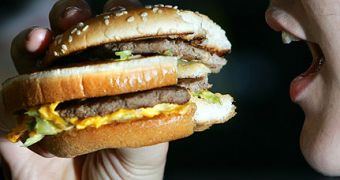Women often find comfort in high-fat foods, especially under circumstances of constant stress. It’s not for nothing that we often see in movies women eating ice cream in the dead of night, straight out of the container, after a breakup, they say. A new study, cited by USA Today, comes to show that, indeed, when suffering from chronic stress, most women will turn to high-fat foods for relief.
At the same time, they will also note that their eating habits are spinning out of control and that they need to exercise more will power than before to fight the cravings. Understandably, they will also gain some extra pounds in the same circumstances – when it’s overweight and obese women we’re talking about (such was the case with the participants to the aforementioned study), then we have reason for concern.
“The women were categorized as having chronic stress if they had ongoing stressful situations such as being unable to pay their rent or mortgage; feeling stuck in a job they don’t like; having a spouse or partner who expects too much of them or doesn’t understand them; having a child who isn’t doing well in school; or acting as a family caregiver for someone in poor health. The researchers found that people who had greater chronic stress were more likely than the other survey participants to say they ate high-fat foods and felt they lacked control over their eating and hunger.” USA Today says of the study.
“We know from other research that these techniques [of keeping tabs on eating habits] tend to backfire and people end up overeating and gaining weight. Chronic stress really taxes people’s ability to self-monitor their eating behavior. In our current environment of abundantly rich food, we need every ounce of conscious effort to manage our eating, because eating is an automatic behavior we can do too easily and too often if we’re not mindful.” psychologist Elissa Epel, associate professor in the department of psychiatry at the UCSF, explains.
In order to prevent becoming trapped inside a vicious cycle that is almost impossible to break at a later time, health experts advise learning to make the difference between emotional hunger / eating and physical hunger. Stress should be dealt with by means of specific stress-management techniques and not food, they underline.

 14 DAY TRIAL //
14 DAY TRIAL //